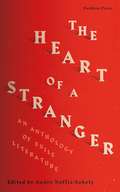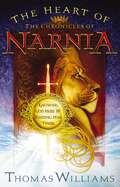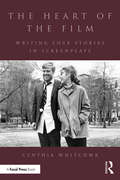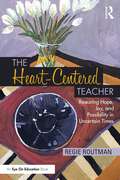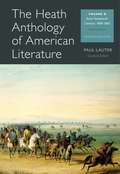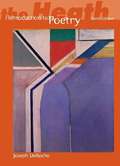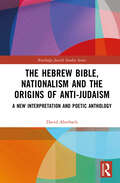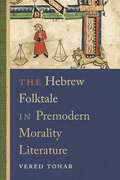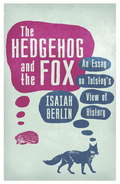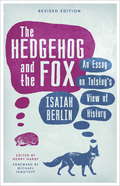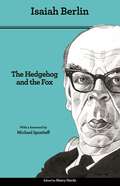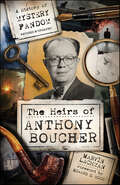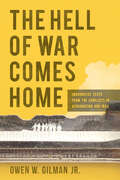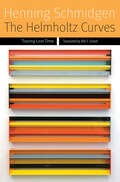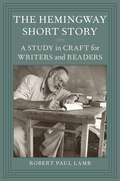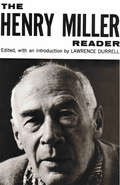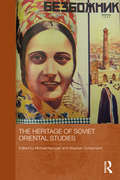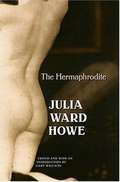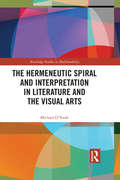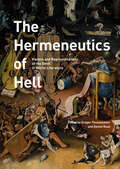- Table View
- List View
The Heart of a Stranger: An Anthology of Exile Literature
by André Naffis-SahelyA fascinatingly diverse anthology of the literature of exile, from the myths of Ancient Egypt to contemporary poetryExile lies at the root of our earliest stories. Charting varied experiences of people forced to leave their homes from the ancient world to the present day, The Heart of a Stranger is an anthology of poetry, fiction and non-fiction that journeys through six continents, with over a hundred contributors drawn from twenty-four languages. Highlights include the wisdom of the 5th century Desert Fathers and Mothers, the Swahili Song of Liyongo, The Flight of the Irish Earls, Emma Goldman's travails in the wake of the First Red Scare, the Syrian poet Nizar Qabbani's ode to the lost world of Andalusia and the work of contemporary Eritrean fabulist Ribka Sibhatu.Edited by poet and translator André Naffis-Sahely, The Heart of a Stranger offers a uniquely varied look at a theme both ancient and urgently contemporary.
The Heart of the Chronicles of Narnia: Knowing God Here by Finding Him There
by Thomas WilliamsIn addition to being one of the best-loved books of all time, The Lion, the Witch and the Wardrobe is sure to set box-office records when it releases in theatres Christmas 2005. Distributed by Disney, directed by Andrew Adamson (director of Shrek), with special effects by the WETA Workshop (The Lord of the Rings), and backed by a $150 million dollar budget, The Lion, the Witch and the Wardrobe will draw millions of eager viewers, Christian and non-Christian alike. After viewing the movie, Christians and Lewis fans will excitedly walk away with a renewed enthusiasm for this classic installment of The Chronicles of Narnia. Using exciting biblical parallels, this companion book will lead readers into a deeper understanding of Christ and will help them discover how these tales by C. S. Lewis beautifully expose a dynamic, joyful, loving God who wants his creatures to experience deep joy and delight.
The Heart of the Film: Writing Love Stories in Screenplays
by Cynthia WhitcombMost movies include a love story, whether it is the central story or a subplot, and knowing how to write a believable relationship is essential to any writer's skill set. Discover the rules and laws of nature at play in a compelling love story and learn and master them. Broken into four sections, The Heart of the Film identifies the critical features of love story development, and explores every variation of this structure as well as a diverse array of relationships and types of love. Author Cynthia Whitcomb has sold over 70 feature-length screenplays and shares the keys to her success in The Heart of the Film, drawing on classic and modern films as well as her own extensive experience.
The Heart-Centered Teacher: Restoring Hope, Joy, and Possibility in Uncertain Times
by Regie Routman"I will speak to you of what I’ve learned and what I’m still struggling with, professionally and personally, not just as a teacher and colleague but also as a wife, daughter, mother, grandmother, friend, and concerned citizen. I want to lift you up—to nourish your heart, mind, and spirit." --Regie Routman How do we find hope and possibility in challenging times? How do we bring our truest selves into our teaching and personal lives? In this unique, inspiring book, beloved author Regie Routman artfully blends stories and strategies to show how we can introduce more joy and gratitude in our classrooms and in our lives. Regie invites us to focus on what matters most in our work and in our relationships with those we hold dear. She shares ideas and practical takeaways for teaching, learning, and living: Seeing and celebrating each learner’s gifts and strengths Creating a storytelling culture Ensuring equitable opportunities for all Co-creating welcoming spaces and routines Developing professional knowledge Championing the reading-writing connection Fostering resilience and hope Taking care of ourselves and our students Making a worthy difference. "Here’s what I know for sure," writes Regie. "Living a good life is about developing, nurturing, and sustaining caring relationships—in our teaching lives, our home lives, and in the happy intersection of both." Wherever you are on your journey, no matter what loss or hardship you may face, The Heart-Centered Teacher will offer you a refreshing chance to pause, take a breath, and reflect on how you and your students can live more compassionate, generous, and authentic lives.
The Heath Anthology of American Literature: Early Nineteenth Century, 1800-1865
by Cengage StaffUnrivaled diversity and ease of use have made The Heath Anthology of American Literature: Volume B: Early Nineteenth Century, 1800-1865, 7th Edition, a best-selling text since 1989, when the first edition was published. In presenting a more inclusive canon of American literature, the seventh edition of Volume B continues to balance the traditional, leading names in American literature with lesser-known writers. Available in five volumes for greater flexibility, the 7th Edition offers thematic groupings, called In Focus, to stimulate classroom discussions and showcase the treatment of important topics across the genres.
The Heath Introduction to Poetry (Sixth edition)
by Joseph DerocheThis chronologically arranged anthology features more than 500 poems written between the eighth century and the present.
The Hebrew Bible, Nationalism and the Origins of Anti-Judaism: A New Interpretation and Poetic Anthology (Routledge Jewish Studies Series)
by David AberbachIn the attempts to unify divided peoples on the basis of a shared past, both historical and mythical, this book illumines aspects of cultural nationalism common since the Middle Ages. As an edited work, the Bible includes texts mostly depicting long-gone historical eras extending over several centuries. Following on from Aberbach’s previous work National Poetry, Empires, and War, this book argues that works of this nature – notably the Mujo-Halil songs in Albania, the Irish stories of Cuchulain, the songs of the Nibelungen in Germany, or the Finnish legends collected in The Kalevala – have an ancient precedent in the Hebrew Bible (to which national literatures often allude and refer), a subject largely neglected in biblical studies. The self-critical element in the Hebrew Bible, common in later national literature, is examined as the basis of later anti-Semitism, as the Bible was not confined to Jews but was adopted in translation by many other national groups. With several dozen original translations from the Hebrew, this book highlights how the Bible influenced and was distorted by later national cultures. Written without jargon, this book is intended for the general reader, but is also an important contribution to the study of the Bible, nationalism, and Jewish history.
The Hebrew Folktale in Premodern Morality Literature (Raphael Patai Series in Jewish Folklore and Anthropology)
by Vered ToharThis pioneering exploration shows that in the early modern world, printed works on morality and ethics served as an important conveyor of classic Jewish folktales and as an important channel of leisure reading in premodern Jewish culture. Utilizing a corpus of over 400 Musar tales, author Vered Tohar carefully opens a path to understand the thematic and poetic features of those tales. This innovative reframing of early modern Musar texts reveals a new history of Jewish folklore and emphasizes the continuity of Hebrew literature from medieval to modern era. Tohar classifies these stories, which she calls "the Musar folktales," into four genres adapted from classic poetic studies: tragedy, comedy, parable or social exemplum, and theological allegory. As parables of vice and virtue, the works featured here were originally printed and circulated in early modern Jewish communities, and each contained themes of love and hate, good and evil, loyalty and betrayal, or life and death. Beyond their traditional function of ethical and moral edification, Tohar advances the Musar texts as an archive of Hebrew tales and their ideological traditions. This innovative reframing of early modern Musar texts reveals a new history of Jewish folklore and a new way to read those texts.
The Hedgehog And The Fox: An Essay on Tolstoy's View of History
by Isaiah BerlinIsaiah Berlin's classic essay on Tolstoy - an exciting new edition with new criticism and a foreword.'The fox knows many things, but the hedgehog knows one big thing.' This fragment of Archilochus, which gives this book its title, describes the central thesis of Isaiah Berlin's masterly essay on Tolstoy. There have been various interpretations of Archilochus' fragment; Isaiah Berlin has simply used it, without implying anything about the true meaning of the words, to outline a fundamental distinction that exists in mankind, between those who are fascinated by the infinite variety of things (foxes) and those who relate everything to a central all-embracing system (hedgehogs). When applied to Tolstoy, the image illuminates a paradox of his philosophy of history, and shows why he was frequently misunderstood by his contemporaries and critics. Tolstoy was by nature a fox, but he believed in being a hedgehog.
The Hedgehog And The Fox: An Essay on Tolstoy's View of History
by Isaiah BerlinIsaiah Berlin's classic essay on Tolstoy - an exciting new edition with new criticism and a foreword.'The fox knows many things, but the hedgehog knows one big thing.' This fragment of Archilochus, which gives this book its title, describes the central thesis of Isaiah Berlin's masterly essay on Tolstoy. There have been various interpretations of Archilochus' fragment; Isaiah Berlin has simply used it, without implying anything about the true meaning of the words, to outline a fundamental distinction that exists in mankind, between those who are fascinated by the infinite variety of things (foxes) and those who relate everything to a central all-embracing system (hedgehogs). When applied to Tolstoy, the image illuminates a paradox of his philosophy of history, and shows why he was frequently misunderstood by his contemporaries and critics. Tolstoy was by nature a fox, but he believed in being a hedgehog.
The Hedgehog And The Fox: An Essay on Tolstoy's View of History (W&N Essentials)
by Isaiah BerlinIsaiah Berlin's classic essay on Tolstoy - an exciting new edition with new criticism and a foreword.'The fox knows many things, but the hedgehog knows one big thing.' This fragment of Archilochus, which gives this book its title, describes the central thesis of Isaiah Berlin's masterly essay on Tolstoy. There have been various interpretations of Archilochus' fragment; Isaiah Berlin has simply used it, without implying anything about the true meaning of the words, to outline a fundamental distinction that exists in mankind, between those who are fascinated by the infinite variety of things (foxes) and those who relate everything to a central all-embracing system (hedgehogs). When applied to Tolstoy, the image illuminates a paradox of his philosophy of history, and shows why he was frequently misunderstood by his contemporaries and critics. Tolstoy was by nature a fox, but he believed in being a hedgehog.
The Hedgehog And The Fox: An Essay on Tolstoy's View of History (W&N Essentials)
by Isaiah BerlinIsaiah Berlin's classic essay on Tolstoy - an exciting new edition with new criticism and a foreword.'The fox knows many things, but the hedgehog knows one big thing.' This fragment of Archilochus, which gives this book its title, describes the central thesis of Isaiah Berlin's masterly essay on Tolstoy. There have been various interpretations of Archilochus' fragment; Isaiah Berlin has simply used it, without implying anything about the true meaning of the words, to outline a fundamental distinction that exists in mankind, between those who are fascinated by the infinite variety of things (foxes) and those who relate everything to a central all-embracing system (hedgehogs). When applied to Tolstoy, the image illuminates a paradox of his philosophy of history, and shows why he was frequently misunderstood by his contemporaries and critics. Tolstoy was by nature a fox, but he believed in being a hedgehog.
The Hedgehog and the Fox: An Essay on Tolstoy's View of History - Second Edition
by Isaiah Berlin"The fox knows many things, but the hedgehog knows one big thing." This ancient Greek aphorism, preserved in a fragment from the poet Archilochus, describes the central thesis of Isaiah Berlin's masterly essay on Leo Tolstoy and the philosophy of history, the subject of the epilogue to War and Peace. Although there have been many interpretations of the adage, Berlin uses it to mark a fundamental distinction between human beings who are fascinated by the infinite variety of things and those who relate everything to a central, all-embracing system. Applied to Tolstoy, the saying illuminates a paradox that helps explain his philosophy of history: Tolstoy was a fox, but believed in being a hedgehog. One of Berlin's most celebrated works, this extraordinary essay offers profound insights about Tolstoy, historical understanding, and human psychology.This new edition features a revised text that supplants all previous versions, English translations of the many passages in foreign languages, a new foreword in which Berlin biographer Michael Ignatieff explains the enduring appeal of Berlin's essay, and a new appendix that provides rich context, including excerpts from reviews and Berlin's letters, as well as a startling new interpretation of Archilochus's epigram.
The Heirs of Anthony Boucher: A History of Mystery Fandom
by Marvin LachmanThe ultimate collection for mystery fansFollowing in the footsteps of those devoted to science fiction and works about Sherlock Holmes, general mystery fandom emerged in 1967 and has since thrived and become an international phenomenon. With its irresistible combination of puzzle-solving and the examination of the dark underbelly of humanity, crime fiction continues to fascinate and delight millions of readers. Ranging the gamut from cozy mysteries to fast-paced thrillers, crime fiction contains a nearly endless range of books… and, of course, a similarly diverse group of readers who devour them.Out of this rabid readership, countless websites, nearly one hundred fan magazines, and dozens of conferences celebrating mysteries have arisen to bring authors, readers, and fans together. This revised and updated edition of The Heirs of Anthony Boucher is an illuminating look at the history of mystery fandom and its effect on readers across the globe. Complete with anecdotes, personal reminiscences, facts, and pictures, it tells the story of the mystery community's publications and conventions, the fans who produce them, and the future of mystery fandom in years to come.
The Hell of War Comes Home: Imaginative Texts from the Conflicts in Afghanistan and Iraq
by Owen W. Gilman Jr.Owen W. Gilman Jr. stresses the US experience of war in the twenty-first century and argues that wherever and whenever there is war, there will be imaginative responses to it, especially the recent wars in Afghanistan and Iraq. Since the trauma of September 11, the experience of Americans at war has been rendered honestly and fully in a wide range of texts--creative nonfiction and journalism, film, poetry, and fiction. These responses, Gilman contends, have packed a lot of power and measure up even to World War II's literature and film.Like few other books, Gilman's volume studies these new texts-- among them Kevin Powers's debut novel The Yellow Birds and Phil Klay's short stories Redeployment, along with the films The Hurt Locker, American Sniper, and Billy Lynn's Long Halftime Walk. For perspective, Gilman also looks at some touchstones from the Vietnam War. Compared to a few of the big Vietnam books and films, this new material has mostly been read and watched by small audiences and generated less discussion.Gilman exposes the circumstances in American culture currently preventing literature and film of our recent wars from making a significant impact. He contends that Americans' inclination to demand distraction limits learning from these compelling responses to war in the past decade. According to Gilman, where there should be clarity and depth of knowledge, we instead face misunderstanding and the anguish endured by veterans betrayed by war and our lack of understanding.
The Helmholtz Curves: Tracing Lost Time (Forms of Living)
by Henning SchmidgenThis book reconstructs the emergence of the phenomenon of “lost time” by engaging with two of the most significant time experts of the nineteenth century: the German physiologist Hermann von Helmholtz and the French writer Marcel Proust.Its starting point is the archival discovery of curve images that Helmholtz produced in the context of pathbreaking experiments on the temporality of the nervous system in 1851. With a “frog drawing machine,” Helmholtz established the temporal gap between stimulus and response that has remained a core issue in debates between neuroscientists and philosophers.When naming the recorded phenomena, Helmholtz introduced the term temps perdu, or lost time. Proust had excellent contacts with the biomedical world of late-nineteenth-century Paris, and he was familiar with this term and physiological tracing technologies behind it. Drawing on the machine philosophy of Deleuze, Schmidgen highlights the resemblance between the machinic assemblages and rhizomatic networks within which Helmholtz and Proust pursued their respective projects.
The Hemingway Short Story: A Study in Craft for Writers and Readers (Southern Literary Studies)
by Robert Paul LambIn The Hemingway Short Story: A Study in Craft for Writers and Readers, Robert Paul Lamb delivers a dazzling analysis of the craft of this influential writer. Lamb scrutinizes a selection of Hemingway's exemplary stories to illuminate the author's methods of construction and to show how craft criticism complements and enhances cultural literary studies. The Hemingway Short Story, the highly anticipated sequel to Lamb's critically acclaimed Art Matters: Hemingway, Craft, and the Creation of the Modern Short Story, reconciles the creative writer's focus on art with the concerns of cultural critics, establishing the value that craft criticism holds for all readers.Beautifully written in clear and engaging prose, Lamb's study presents close readings of representative Hemingway stories such as "Soldier's Home," "A Canary for One," "God Rest You Merry, Gentlemen," and "Big Two-Hearted River." Lamb's examination of "Indian Camp," for instance, explores not only its biographical contexts -- showing how details, incidents, and characters developed in the writer's mind and notebook as he transmuted life into art -- but also its original, deleted opening and the final text of the story, uncovering otherwise unseen aspects of technique and new terrains of meaning. Lamb proves that a writer is not merely a site upon which cultural forces contend, but a professional in his or her craft who makes countless conscious decisions in creating a literary text.Revealing how the short story operates as a distinct literary genre, Lamb provides the meticulous readings that the form demands -- showing Hemingway practicing his craft, offering new inclusive interpretations of much debated stories, reevaluating critically neglected stories, analyzing how craft is inextricably entwined with a story's cultural representations, and demonstrating the many ways in which careful examinations of stories reward us.
The Henry Miller Reader (Essay Index Reprint Ser.)
by Henry Miller Lawrence DurrellA collection of works spanning the entire career of great 20th-century American writer Henry Miller, edited and introduced by Lawrence Durrell. In 1958, when Henry Miller was elected to membership in the American Institute of Arts and Letters, the citation described him as: "The veteran author of many books whose originality and richness of technique are matched by the variety and daring of his subject matter. His boldness of approach and intense curiosity concerning man and nature are unequalled in the prose literature of our times." It is most fitting that this anthology of "the best" of Henry Miller should have been assembled by one of the first among Miller’s contemporaries to recognize his genius, the eminent British writer Lawrence Durrell. Drawing material from a dozen different books Durrell has traced the main line and principal themes of the "single, endless autobiography" which is Henry Miller’s life work. "I suspect," writes Durrell in his Introduction, "that Miller’s final place will be among those towering anomalies of authorship like Whitman or Blake who have left us, not simply works of art, but a corpus of ideas which motivate and influence a whole cultural pattern." Earlier, H. L. Mencken had said, "his is one of the most beautiful prose styles today," and the late Sir Herbert Read had written that "what makes Miller distinctive among modern writers is his ability to combine, without confusion, the aesthetic and prophetic functions." Included are stories, "portraits" of persons and places, philosophical essays, and aphorisms. For each selection Miller himself prepared a brief commentary which fits the piece into its place in his life story. This framework is supplemented by a chronology from Miller’s birth in 1891 up to the spring of 1959, a bibliography, and, as an appendix, an open letter to the Supreme Court of Norway written in protest of the ban on Sexus, a part of which appears in this volume.
The Heretical Archive: Digital Memory at the End of Film
by Domietta TorlascoThe Heretical Archive examines the relationship between memory and creation in contemporary artworks that use digital technology while appropriating film materials. Domietta Torlasco argues that these digital films and multimedia installations radically transform our memory of cinema and our understanding of the archive. Indeed, such works define a notion of archiving not as the passive preservation of audiovisual signs but as an intervention and the creative rearticulation of cinema&’s perceptual and political textures. Connecting psychoanalysis, phenomenology, and feminist theory in innovative ways, Torlasco analyzes cutting-edge digital works that engage with the past of European cinema and visual culture, including video installations by Monica Bonvicini (Destroy She Said) and Pierre Huyghe (The Ellipsis), Agnès Varda&’s film The Gleaners and I, Marco Poloni&’s multimedia installation The Desert Room, and Chris Marker&’s CD-ROM Immemory. Torlasco&’s central claim is that if the archives of psychoanalysis and cinema have long privileged the lineage that runs from Oedipus to Freud, the archives of the digital age—what she calls the &“heretical archive&”—can help us imagine an unruly, porous, multifaceted legacy, one in which marginal figures return to speak of lost life as much as of life that demands to be lived.
The Heritage Series of Black Poetry, 1962–1975: A Research Compendium
by Lauri RameyIn 1962, the Heritage Series of Black Poetry, founded and edited by Paul Breman, published Robert Hayden's A Ballad of Remembrance. By 1975, the Series had published 27 volumes by some of the twentieth-century's most important and influential poets. As elaborated in Lauri Ramey's extensive scholarly introduction, this innovative volume has dual purposes: To provide primary sources that recover the history and legacy of this groundbreaking publishing venture, and to serve as a research companion for scholars working on the Series and on twentieth-century black poetry. Never-before-published primary materials include Paul Breman's memoir, retrospectives by several of the poets published in the Series, a photo-documentary of W.E.B. Du Bois's 1958 visit to The Netherlands, poems by poets represented in the Series, and scholarly essays. Also included are bibliographies of the Heritage poets and of the Heritage Press Archives at the Chicago Public Library. This reference work is an essential resource for scholars working in the fields of black poetry, transatlantic studies, and twentieth-century book history.
The Heritage of Soviet Oriental Studies (Routledge Contemporary Russia and Eastern Europe Series)
by Michael Kemper Stephan ConermannThis book examines the Russian/Soviet intellectual tradition of Oriental and Islamic studies, which comprised a rich body of knowledge especially on Central Asia and the Caucasus. The Soviet Oriental tradition was deeply linked to politics – probably even more than other European ‘Orientalisms’. It breaks new ground by providing Western and post-Soviet insider views especially on the features that set Soviet Oriental studies apart from what we know about its Western counterparts: for example, the involvement of scholars in state-supported anti-Islamic agitation; the early and strong integration of ‘Orientals’ into the scientific institutions; the spread of Oriental scholarship over the ‘Oriental’ republics of the USSR and its role in the Marxist reinterpretation of the histories of these areas. The authors demonstrate the declared emancipating agenda of Soviet scholarship, with its rhetoric of anti-colonialism and anti-imperialism, made Oriental studies a formidable tool for Soviet foreign policy towards the Muslim World; and just like in the West, the Iranian Revolution and the mujahidin resistance to the Soviet occupation of Afghanistan necessitated a thorough redefinition of Soviet Islamic studies in the early 1980s. Overall, the book provides a comprehensive analysis of Soviet Oriental studies, exploring different aspects of writing on Islam and Muslim history, societies, and literatures. It also shows how the legacy of Soviet Oriental studies is still alive, especially in terms of interpretative frameworks and methodology; after 1991, Soviet views on Islam have contributed significantly to nation-building in the various post-Soviet and Russian ‘Muslim’ republics.
The Hermaphrodite (Legacies of Nineteenth-Century American Women Writers)
by Julia Ward HoweWritten in the 1840s and published here for the first time, Julia Ward Howe's novel about a hermaphrodite is unlike anything of its time-or, in truth, of our own. Narrated by Laurence, who is raised and lives as a man and is loved by men and women alike, yet can respond to neither, this unconventional story explores the realization "that fervent hearts must borrow the disguise of art, if they would win the right to express, in any outward form, the internal fire that consumes them." Laurence describes his repudiation by his family, his involvement with an attractive widow, his subsequent wanderings and eventual attachment to a sixteen-year-old boy, his own tutelage by a Roman nobleman and his sisters, and his ultimate reunion with his early love. <p><p> His is a story unique in nineteenth-century American letters, at once a remarkable reflection of a largely hidden inner life and a richly imagined tale of coming-of-age at odds with one's culture.
The Hermeneutic Spiral and Interpretation in Literature and the Visual Arts (Routledge Studies in Multimodality)
by Michael O'TooleThis collection brings together eighteen of the author’s original papers, previously published in a variety of academic journals and edited collections over the last three decades, on the process of interpretation in literature and the visual arts in one comprehensive volume. The volume highlights the centrality of artistic texts to the study of multimodality, organized into six sections each representing a different modality or semiotic system, including literature, television, film, painting, sculpture, and architecture. A new introduction lays the foundation for the theoretically based method of analysis running through each of the chapters, one that emphasizes the interplay of textual details and larger thematic purposes to create an open-ended and continuous approach to the interpretation of artistic texts, otherwise known as the "hermeneutic spiral". Showcasing Michael O’Toole’s extensive contributions to the field of multimodality and in his research on interpretation in literature and the visual arts, this book is essential reading for students and scholars in multimodality, visual arts, art history, film studies, and comparative literature.
The Hermeneutics of Hell
by Gregor Thuswaldner Daniel RussThis collection of essays analyzes global depictions of the devil from theological, Biblical, and literary perspectives, spanning the late Middle Ages to the 21st century. The chapters explore demonic representations in the literary works of Johann Wolfgang von Goethe, Fyodor Dostoyevsky, Dante Alighieri, Charles Baudelaire, John Milton, H. P. Lovecraft, and Cormac McCarthy, among others. The text examines other media such as the operas Orfeo and Erminia sul Giordano and the television shows Breaking Bad, The Sopranos, and Mad Men. The Hermeneutics of Hell, featuring an international set of established and up-and-coming authors, masterfully examines the evolution of the devil from the Biblical accounts of the Middle Ages to the individualized presence of the modern world.
The Hermeneutics of Postmodernity: Figures and Themes
by G. B. MadisonWhat you, Dear Reader, are about to embark upon is a smorgasbord of ideas. Not just any old smorgasbord, however. Most certainly not one of those which advertise themselves to the unwary customer as offering 250 different specialties "from around the world." No, the smorgasbord offered up here for your delectation is a coherent and consistent one, including only a few select items, like an all-Chinese or all-Swedish one. All the dishes have been prepared in the same mental kitchen, with the same, or complementary, spices and seasonings, and prepared with the same, or complementary, cooking techniques. However, just as some people are not attracted to spicy foods, so some people won't care for what is served up to them here. If, though, you believe that it is high time that philosophy abandoned the stock, fatty concoctions it has traditionally served up in its metaphysical soup kitchens (as William James referred to them), then you should definitely appreciate what is here offered for your dégustation. This book, I say, is like a smorgasbord--in that it is not like a formal, six-course dinner; there is no special order in which the dishes need be consumed.
